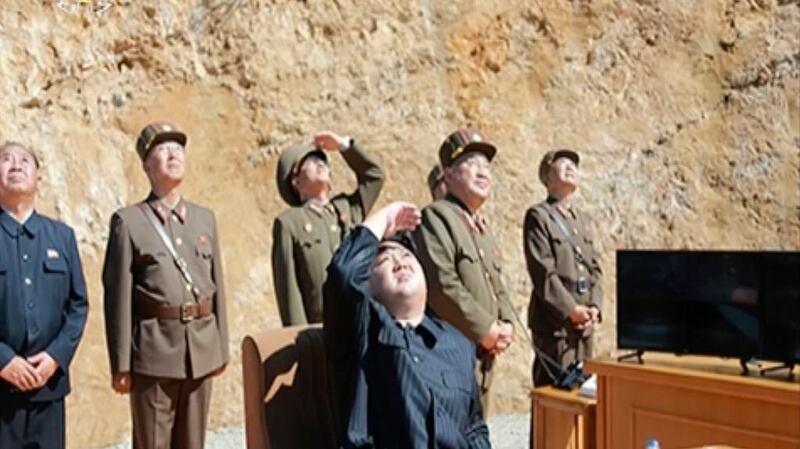Last year, Donald Trump declared he would gladly talk to North Korea's rogue leader over a burger across a conference table. On Tuesday, Mr Trump threatened the same North Korean leader with "fire and fury". Burger diplomacy is out. But what does "fire and fury" herald: a mere semantic upgrade to the "shock and awe" rhetoric of the George W Bush era, or a real departure from America's collapsed policy of containment towards North Korea?
Mr Trump’s habit of making sensational pronouncements, leaving his administration scrambling to fill in the blanks, makes it difficult to second-guess his intent. It would nonetheless be prudent for North Korea to discard any lingering doubts. After more than two decades of fruitless diplomacy and indulgence of its behaviour, America has evidently run out of patience with Pyongyang.
North Korea first extracted a commitment of negotiations from Washington in the early 1990s by threatening to go nuclear – and then brandished the nuclear arsenal it developed behind the cloak of those negotiations to blackmail its adversaries into offering yet more concessions. Successive Americans presidents – Bill Clinton, George W Bush, Barack Obama – were counselled by cautious advisers to engage with North Korea.
First, it was said that America had enough time to convince successive members of the Kim family to abandon their nuclear programme. Then, when Pyongyang went nuclear in 2006, it was said that Washington could change North Korea's behaviour in the time it would take to build delivery systems. When finally North Korea tested in July an intercontinental ballistic missile capable of carrying a nuclear payload all the way to Alaska in July, it was said that Pyongyang could not fit warheads to the missiles. Washington refused to see the failure of the diplomatic process to moderate North Korea's conduct as evidence of the diplomatic process's failure. Now we know that North Korea has successfully miniaturised its nuclear weapons to fit its missiles.
Japan and South Korea, whose major cities have long been within the range of North Korea’s scud missiles, can in the future be annihilated should Tokyo or Seoul displease Kim Jong-un. Faith in Washington’s security commitments to Tokyo and Seoul have no doubt been undermined by the fact that Pyongyang’s missiles can now strike America’s population. Will America come to South Korea’s aid if doing so would invite a nuclear attack from North Korea?
Mr Trump enlisted the help of China, which effectively props up the Kim regime with aid and trade, to apply pressure on Pyongyang. Beijing failed to deliver. All of this has emboldened Pyongyang. Mr Kim now threatens to bomb Guam, the tiny US territory in the Pacific where 6,000 American soldiers are stationed. Mr Trump's opponents aren't thrilled about his "fire and fury" flourish, but it is long past time someone spoke to Mr Kim in a language he understands.





